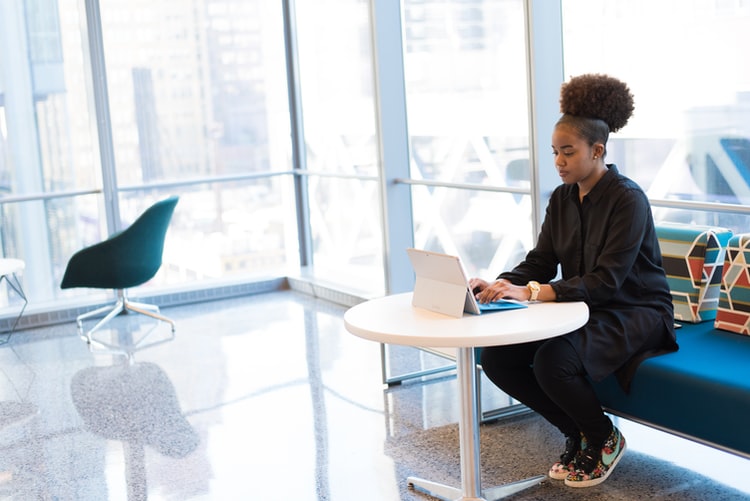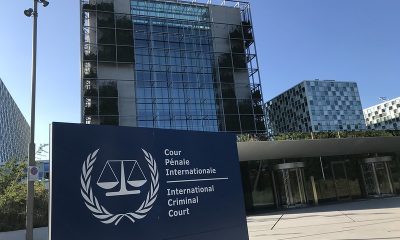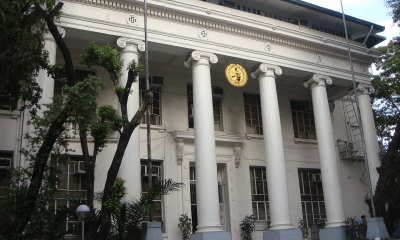Canada News
Addressing anti-Black racism in post-secondary institutions can transform Canada after the COVID-19 pandemic

Canadian colleges and universities are an important site for imagining and enacting a better Canada post-pandemic. Addressing the experiences of Black students, staff and faculty in these institutions is essential to move through and beyond crisis towards societal transformation. (File Photo: Christina @ wocintechchat.com/Unsplash)
COVID-19 has brought issues of racism and inequality in our education systems into stark relief. We must now consider the role of colleges and universities in transforming Canada for the better after coronavirus.
Some have argued that the humanities and social sciences have a particularly important role in shaping our responses to the pandemic. Others suggest that now is the time to rethink higher education and pivot to a more decentralized model that reduces demands on the environment and opens up horizons for innovation and flexible learning.
Canadian colleges and universities are an important site for imagining and enacting a better Canada post-pandemic. Addressing the experiences of Black students, staff and faculty in these institutions is essential to move through and beyond crisis towards societal transformation.
COVID-19 contexts
One way to approach such fundamental issues is to examine the experiences of Black people within the academy. Black people in Canada have always had challenging relationships with educational institutions. Their experiences can be characterized as an enduring crisis, one that will most likely outlive our current pandemic.
As important sites where future workers are educated and developed, and where global events like COVID-19 are studied and theorized, universities and colleges offer unique spaces to think deeply about these critical interconnections as we engage in protest against anti-Black racism and move toward possible transformations beyond the pandemic.
So what might we glean from all of the ways in which Black people in higher education have managed to survive and persist during the coronavirus? And how might understanding their experiences be useful in thinking about how colleges and universities can contribute to a post-coronavirus future?
As a Black college administrator and someone whose doctoral research looks at the experiences of Black people in higher education, I have witnessed how the pandemic has wreaked havoc in the lives of Black students and colleagues first hand.
I’ve observed how Black students, faculty and staff have had to attend to home lives shot through with constant worry for loved ones who are employed on the front lines; the constant threat of layoffs that has disproportionately impacted Black and racialized staff; and how the need to maintain employment has made the continuation of studies near-impossible for far too many Black students.
Indeed, the coronavirus continues to have a disproportionate impact on all aspects of Black life.
All of this comes on top of an already tenuous and vexing relationship with post-secondary institutions, where historically high push-out/dropout rates, social isolation and anti-Black racism is pervasive.
Read more:
Living and breathing while Black: Racial profiling and other acts of violence
Black ‘care’
Black people have known crisis ever since the trans-Atlantic slave trade, and we have known it in the academy well before COVID-19. To be Black and active in the academy is to know what it means to survive, largely by practising what York University humanities scholar Christina Sharpe has termed “care”.
Care can be discerned in the countless check-ins on the states of well-being of Black students and colleagues; in the meetings after the meeting where what was both said and left unsaid by non-Black colleagues is unpacked; and in the spontaneous email threads where supports and mental health resources for Black people are shared.
For those of us concerned with higher education and its role in contributing to the public good in a post-pandemic future, we might imagine ways of embedding a similar ethics of care in all that we do. We might consider and examine how our everyday work of teaching and learning may be complicated by such a commitment.
Unmaking the academy
What does it mean to be in the university but not of the university? And what might this asymmetrical relationship mean for those of us who learn and work in higher education beyond COVID-19?
I think of the ongoing protests against anti-Black racism both within and outside the academy as opportunities to conceptualize ways in which Black people attempt to resist anti-Black prescriptions and forces, whether they’re procedural (harmful policy), mental (internalized racism) or physical (damaging environments/bodily stress).
Protest is a necessary, important and potentially transformative act of refusal. Whether it is resigning from a prestigious university committee or bringing attention to racism on campus, protest is a means for both surviving the academy and making way for change.
Black solidarity
Black people have survived the academy partly because of their creative ways of tending to and accessing resources that sustain their presence. In my many years teaching and working in higher education, I’ve observed how Black students and staff (myself included) have relied on each other to persist in their various endeavours.
This includes the pooling of intellectual resources, quietly pointing Black students to financial supports (both formal and informal), sharing of cultural knowledge and guidance, making connections and introductions for employment, offering timely encouragement, and trading and purchasing of goods (time, peer tutoring, food, short-term loans, transit fare, child-minding, etc.)
All of these affirming and supportive activities amount to what York University professor Caroline Shenaz Hossein refers to as the “Black social economy.”
As we witness the confluence of global activism in response to police brutality and demands for social and economic democracy during the coronavirus pandemic, we should rethink our public institutions through a deeper understanding of Black care, protest and solidarity.![]()
![]()
Neil Price, PhD student, Adult Education and Community Development, University of Toronto
This article is republished from The Conversation under a Creative Commons license. Read the original article.





















